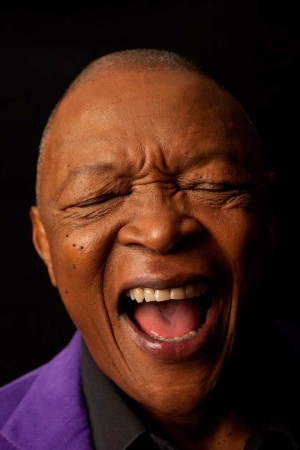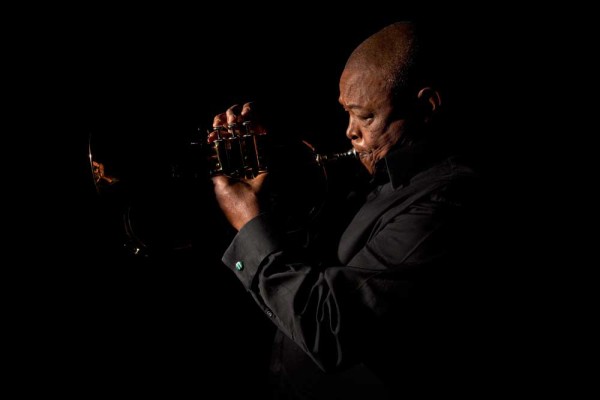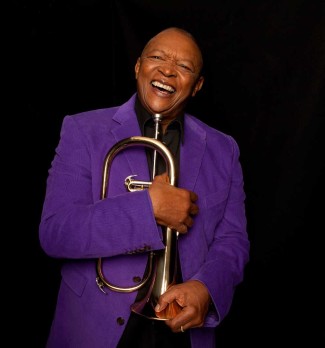INTERVIEW: Jazz great Hugh Masekela plays the music he loves

Hugh Masekela is one of the most important jazz musicians of all time. His name is frequently spoken in the same breath as Miles Davis, John Coltrane and Herbie Hancock. The South African musician, known for his work on the trumpet and flugelhorn, has crafted some memorable tunes, everything from “Grazin’ in the Grass” to “Stimela (Coal Train)” to “Bring Him Back Home (Nelson Mandela).”
Over the years, Masekela has partnered with many singers and instrumentalists of great merit. From Paul Simon to Harry Belafonte to Dizzy Gillepsie, his network of musical partners is a who’s who of the 20th century. One of his most cherished colleagues and friends is Larry Willis, the expert piano player and composer who first met Masekela when both of them were students at the Manhattan School of Music in the 1960s.
Now, the two have teamed up for a tour of the United States, dubbed “Best of Friends,” that finds the legends interpreting some of the most respected standards from some of the most respected jazz greats. Also sprinkled within the set lists are some of Masekela’s own powerful compositions. Read Hollywood Soapbox’s review of the concert tour here.
“Yeah, we met in 1960 at the Manhattan School of Music, and we’ve been friends and fellow players since then,” Masekela said recently in a phone interview. “We’ve done a lot of work together, on and off.”
Masekela called the 1960s, when he and Willis would often travel from jazz club to jazz club at night, the “heyday of music.”
“You know, when we met, it was I guess pre-rock ‘n’ roll,” he said. “One night you could hear Coltrane, Miles Davis, Mingus, Monk, Horace Silver, Sarah Vaughan, Ella Fitzgerald, Duke Ellington, Count Basie. … I mean, you know, just in one evening, especially when you were a student because we didn’t pay. We had student cards, and we got in free and stood by the bar in a place called the peanut gallery. And it was also the days of a lot of jamming, playing together and trying to find who had a piano and a place to play. So it was a very active musical time, and some of the greatest musicians were at the height of their careers. It was a great time to be in the world.”

Masekela shares these memories throughout the concert tour, offering music fans a glimpse of his formative years and the enduring friendship he still has with Willis. Today, when catching Masekela in concert, the experience can be quite transportive. His voice is a powerful instrument separate from his energetic playing on the flugelhorn. The singing commands attention, but he can also turn a slow song into an infectious, sentimental moment. He may be one of the only musicians who can effectively deliver “Stimela (Coal Train),” a rousing spoken-word piece, and then play “When It’s Sleepy Time Down South,” the beloved Louis Armstrong tune. After that dichotomy, he and Willis launch into “Until the Real Thing Comes Along,” which, the way Masekela sings the tune, wouldn’t sound out of place on a Broadway stage. Miriam Makeba tunes, plus other South African songs, populate the rest of the set list, solidifying the audience’s belief in Masekela’s versatility as a performer.
He’s delivering a craft that was apparently fine-tuned during those memorable nights in the 1960s. “Everybody was working,” he said of his fellow jazz players. “Musicians are workers. They’re not competitors. … Music is not a sport. You can’t do it alone. It takes teamwork.”

Willis and Masekela, after soaking in that iconic jazz music, formed their first group together in 1963. The trumpeter-flugelhornist called it the “sum total” of the music they had learned up until that point. “And that’s what we’re still doing,” he said. “We can’t be anything else. We can’t do many other things, but that’s what we’re best at, is playing the music we love.”
The songs for the “Friends” tour have been carefully prepared by the musicians, although the set list can change from night to night (“Grazin’ in the Grass” was played in West Long Branch, N.J., for example, but not at one of their New York City gigs).
“All artists are at their most comfortable when they prepared for you,” said Masekela, who recently released Jabulani, a celebration of wedding songs. “You know, it’s not like sports or basketball where you choose sides, and five persons on each side and start playing. You know, you prepare, and you learn the music. You learn songs. Music is an [opportunity] to learn what you know and do it better, and you can’t fool the people, you know.”
Although many other jazz greats are mentioned throughout the concert experience, Armstrong receives much of the spotlight. Masekela believes the New Orleans trumpeter and singer was the “epitome of southern music.”
“I’m very partial to the old music of the South,” he said. “I still love listening to Bessie Smith, Ma Rainey, Jelly Roll Morton, other Louis Armstrong, Buddy Bolden and King Oliver records. … Some of them call it ragtime or Dixieland at the time, but it was a style of art that was very specialized.”
Masekela said he plays music — then, now and in the future — because he simply loves it. He’s not looking for “positions.” He’s simply doing what musicians do. “Most musicians play music to make a living,” he said. “You know, I love music. I’m lucky that I get paid to play it, but it’s my passion and my way of life.”
He added: “I mean, I don’t plan anything. I just plan to receive it if it comes my way. I have a lot of wishes, but even for wishes you have to work hard. If you wish to play your instrument well, you have to practice.”
The “Best of Friends” tour finds Masekela and Willis on a nostalgic trip into the past; it’s a time to cherish each other and the collective memories of living and playing music for more than five decades.
“Well, we’re all products of our past,” he said. “If we don’t know our pasts, we don’t know ourselves. You know what I mean? If you’re not nostalgic, then you’re stuck in the present. The present, I’m afraid, is not that interesting.”
Here’s how Masekela characterized the present: “We’re living in a very destructive, very technological and very acquisition era right now. And it’s a ‘me’ era, and it’s an era where everybody is looking at a screen most of the time. So it’s a very nonorganic time, but when I met Larry in probably one of the greatest periods in the existence of the human race, you know … it was not only the golden age of the music of Miles Davis, the Dizzys, the Coltranes and the Count Basies and those people playing, but it was also the emergence of rhythm and blues. And it was also a great time of folk music, you know, the Belafontes, the Bob Dylans, the Miriam Makebas. It was a very creative period even in the arts, in the visual arts. It was the most creative period of the 20th century and also probably the craziest.”
With a few pennies, as he put it, they lived a wild, jazz-filled time in the Big Apple.
“But it’ll never be the same again,” Masekela said. “Things will never be the same.”
By John Soltes / Publisher / John@HollywoodSoapbox.com
- Hugh Masekela and Larry Willis are currently touring the United States. Their schedule takes them to Washington, Oregon, California, Michigan and Ohio in the coming weeks. Click here for more information.

